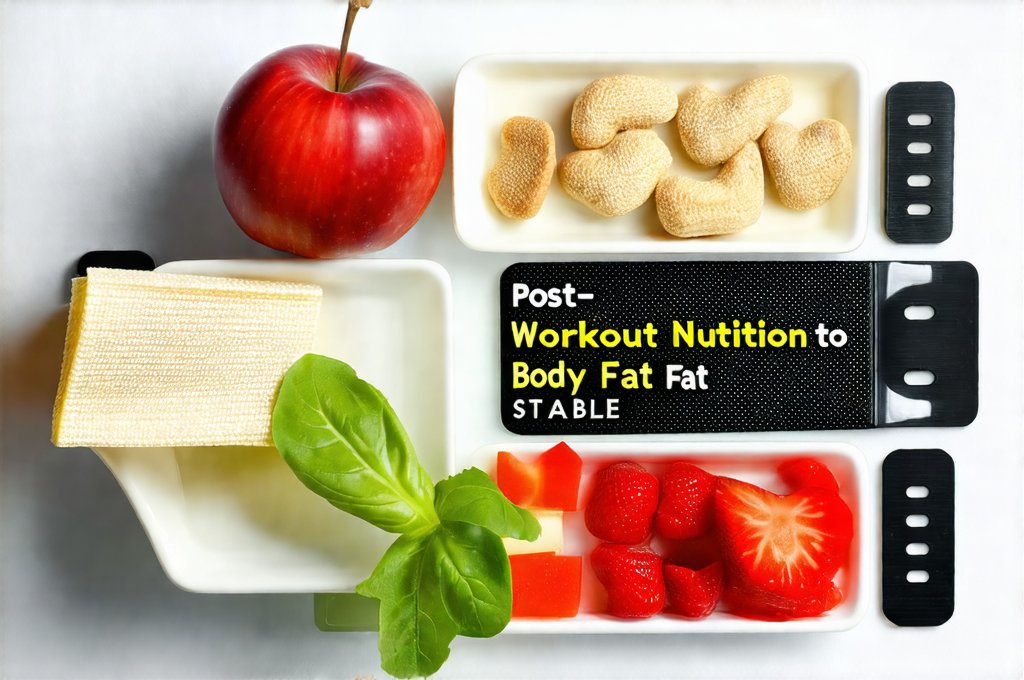Post-workout nutrition is often shrouded in complex recommendations and conflicting information. Many people believe it’s all about chugging protein shakes immediately after exercise, but the reality is far more nuanced. Effective post-workout nutrition isn’t just about replenishing what you lost during your training session; it’s about strategically supporting recovery, optimizing muscle repair, and crucially, maintaining stable body fat levels. It’s a key component of long-term health and fitness success, working hand-in-hand with consistent exercise and a balanced overall diet. Ignoring this aspect can hinder progress, even with dedicated workouts.
The goal isn’t simply to avoid gaining fat after training; it’s about creating an environment where your body efficiently uses the energy from food to rebuild and recover, while simultaneously minimizing unnecessary storage. This involves understanding how exercise impacts metabolic processes, hormonal responses, and nutrient partitioning within the body. It requires a holistic approach that considers individual factors such as workout intensity, duration, personal metabolism, and overall dietary habits. A one-size-fits-all mentality rarely works in nutrition, and tailoring your post-workout strategy to your specific needs is essential for achieving sustainable results.
The Importance of Replenishing Glycogen Stores
One of the primary metabolic effects of exercise, particularly high-intensity activities like running or weightlifting, is the depletion of glycogen stores – the stored form of glucose in your muscles and liver. These are your body’s readily available energy source. When glycogen levels are low, it can lead to fatigue, reduced performance, and even impaired recovery. Failing to replenish these stores post-workout can also negatively impact insulin sensitivity, making it harder for your body to effectively use carbohydrates later on, potentially contributing to fat storage over time.
The amount of carbohydrate needed post-workout varies significantly based on the intensity and duration of exercise. A short, low-intensity session might require only a small amount, while a grueling marathon training run demands considerably more. Generally, aiming for 0.5 – 1.2 grams of carbohydrates per kilogram of body weight within the first few hours after exercise is a good starting point. Prioritizing complex carbohydrates like sweet potatoes, brown rice, or quinoa over simple sugars helps to stabilize blood sugar levels and provide sustained energy.
Furthermore, combining carbohydrates with protein post-workout enhances glycogen replenishment. Insulin, released in response to carbohydrate intake, facilitates glucose uptake into muscle cells. Protein further stimulates insulin release and also provides the amino acids necessary for muscle repair. This synergistic effect makes a combination of carbs and protein ideal for optimizing recovery and supporting healthy body composition.
Timing Your Post-Workout Nutrition
The “anabolic window” – the idea that you have only a short period after exercise to consume nutrients for maximum benefit – has been largely debunked. While it’s beneficial to eat relatively soon after training, obsessing over a strict 30-60 minute timeframe isn’t necessary for most individuals. The body continues to recover and rebuild for many hours post-exercise.
However, waiting excessively long to refuel can hinder recovery. A practical approach is to aim to consume something within the first two to three hours after your workout. This provides a reasonable window to address glycogen depletion and initiate muscle repair without creating unnecessary stress or anxiety around timing. Consistency is far more important than rigidly adhering to an arbitrary timeframe.
The specific timing also depends on when you last ate before training. If you had a substantial meal 2-3 hours prior, your body likely still has readily available resources. In this case, focusing on a smaller post-workout snack or meal might be sufficient. If you trained fasted, or it’s been several hours since your last meal, prioritizing quicker replenishment becomes more important.
Protein Intake for Muscle Repair & Satiety
Protein is absolutely critical for muscle repair and growth after exercise. Exercise creates micro-tears in muscle fibers, and protein provides the building blocks – amino acids – needed to rebuild them stronger. Adequate protein intake also helps reduce muscle soreness and promotes faster recovery. Aiming for around 0.25 – 0.4 grams of high-quality protein per kilogram of body weight post-workout is a good starting point.
Choosing lean protein sources like chicken breast, fish, Greek yogurt, or tofu ensures you’re getting essential amino acids without excessive fat intake. Whey protein shakes are convenient for quick absorption, but whole food sources offer additional nutrients and often promote greater satiety. Satiety is particularly important for managing body fat, as it helps prevent overeating later in the day.
Don’t underestimate the power of distributing your protein intake throughout the day. Instead of trying to consume a massive amount post-workout, focus on consistent protein consumption across all meals and snacks. This provides a steady stream of amino acids for ongoing muscle recovery and maintenance.
Hydration: Often Overlooked but Crucial
Hydration is frequently overlooked in post-workout nutrition discussions, yet it’s arguably as important as carbohydrates and protein. Exercise leads to fluid loss through sweat, and dehydration can impair recovery, reduce performance, and even increase the risk of injury. It also affects metabolic function and appetite regulation – potentially contributing to unwanted fat gain.
The amount of fluid needed post-workout varies depending on factors like exercise intensity, duration, ambient temperature, and individual sweat rate. A good rule of thumb is to rehydrate with 125-150% of the fluids lost during exercise. This can be determined by weighing yourself before and after a workout – any weight loss represents fluid loss.
Electrolytes, such as sodium, potassium, and magnesium, are also lost through sweat. Replenishing these electrolytes is crucial for maintaining proper muscle function and hydration balance. Consider incorporating electrolyte-rich foods or drinks post-workout, especially after intense or prolonged exercise. Plain water remains the best base for rehydration, but adding a pinch of sea salt or drinking coconut water can help replenish electrolytes.
Ultimately, successful post-workout nutrition isn’t about rigid rules or chasing trends; it’s about understanding your body’s needs and making informed choices that support recovery, optimize performance, and contribute to long-term health. It’s one piece of the puzzle, working alongside consistent exercise, a balanced diet, and adequate sleep for sustainable results.




